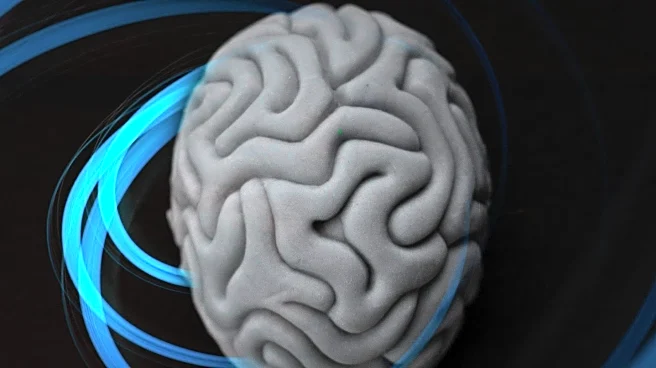What's Happening?
Researchers at the University of Edinburgh are investigating a rare sleep phenomenon known as 'sushupti,' which is characterized by awareness without dreams or sensory experiences. This state, described in Hindu philosophy as a deep, dreamless sleep, challenges traditional Western notions of consciousness that typically involve awareness of objects. The study involved surveying 573 individuals online and conducting in-depth interviews with 18 participants who reported experiencing 'objectless sleep.' Researchers taught four volunteers techniques such as meditation and lucid dreaming to maintain awareness during sleep, monitored by EEG tests. Findings suggest that 'objectless sleep experiences' occur during deep, non-REM sleep, prompting a reevaluation of consciousness.
Why It's Important?
The exploration of 'sushupti' could significantly impact the understanding of consciousness, potentially altering how sleep and awareness are perceived in Western science. This research may lead to new insights into the mind's capabilities beyond traditional dream states, offering implications for mental health and cognitive science. By challenging the notion that consciousness requires sensory input, the study opens avenues for further exploration into states of pure awareness. This could influence therapeutic practices, meditation techniques, and the broader field of neuroscience, providing a deeper understanding of human consciousness and its potential applications.
What's Next?
Future research may focus on expanding the sample size and diversity of participants to validate findings and explore the practical applications of 'sushupti.' Researchers might investigate how this state can be intentionally induced and its potential benefits for mental health and cognitive enhancement. The study could also inspire interdisciplinary collaboration between neuroscientists, psychologists, and philosophers to further explore consciousness. Additionally, the findings may lead to the development of new meditation or therapeutic practices aimed at achieving 'objectless sleep' for improved mental well-being.
Beyond the Headlines
The study of 'sushupti' raises ethical and philosophical questions about the nature of consciousness and self-awareness. It challenges the Western-centric view of consciousness, potentially integrating Eastern philosophical concepts into scientific discourse. This could lead to a cultural shift in how consciousness is understood and valued, influencing both scientific research and societal attitudes towards mental states. The phenomenon also prompts consideration of the implications for personal identity and the experience of existence, offering a unique perspective on the human condition.











